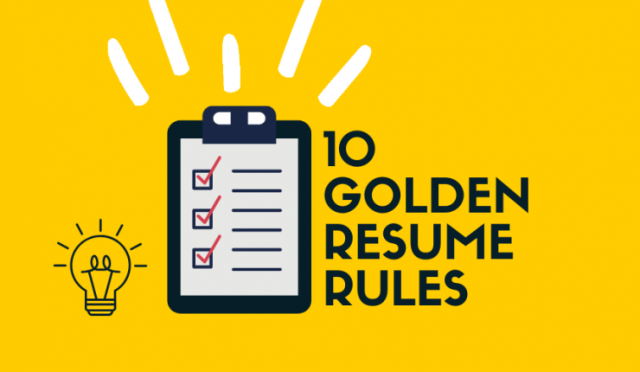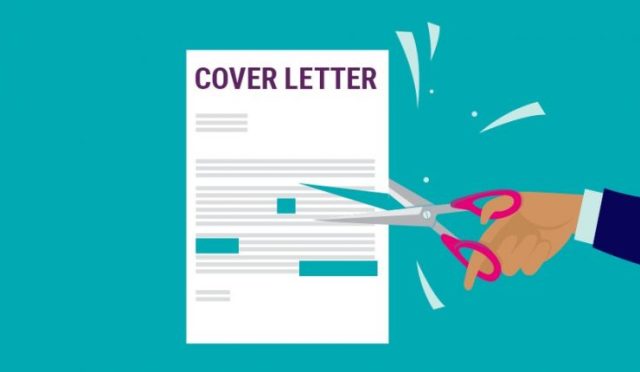Before reading this material, make sure you’ve already read Job Interview: How to Win It (1) , as it outlines the top five rules to follow in order to win the interview you’re looking for invited.
The first part of the material specifically covers defining interview goals, preparing for the interview, making a great first impression in the first 30-60 seconds, adapting to the interviewer’s style, and delivering a top-notch presentation.
And now, it’s time for the second five rules of behavior during a job interview:

İçindekiler
6. Watch for non-verbal behavior – both the interviewer’s and your own
During the course of the job interview, there will be not only speaking but also non-verbal communication between you and the interviewer. This non-verbal communication is no less important than the verbal one – don’t underestimate it for a moment and monitor it constantly.
Monitoring nonverbal behavior has two dimensions:
1. Your own non-verbal behavior
Here are some tips in this regard:
- Maintain eye contact with the person across from you
- Smile more often
- Avoid crossing your arms over your chest
- Don’t drum your fingers on the table
- Don’t jingle with coins in your pocket
- Don’t shake your legs
- Do not rotate in the chair (if it is on wheels)
- Do not “play” with a pen or other object in your hands
- If possible, do not sit on the other side of the table, directly opposite the interviewer (this is a physical barrier that prevents rapprochement during the job interview)
- Take notes (!) of the most important points you hear about the vacancy during the interview
2. The non-verbal behavior of the interviewer
It is critical during the interview to monitor the non-verbal behavior of the interviewer. It can give you a lot more information than the words and phrases that the person across from you says to you.
Specifically:
- Is the interviewer listening to you attentively or is he rather distracted?
- Is he smiling or too serious?
- Does he lean his body toward you (if you were able to sit close to him without physical barriers between you) or does he rather “run” back?
- What is his tone and intonation – more personal, “conspiratorial”, or more formal and dry?
- Does he look at his watch or give signals that he wants to talk to you more?
- Does he look you in the face when he talks to you?
- Nods in agreement?
- Is he on the phone and talking on his GSM?
- Do you take notes?
All these and many other non-verbal signals can guide you in how the interview is going.
If you find more positive non-verbal signals in the interviewer – continue your presentation in the same style.
But if you’re noticing negative nonverbal cues, you need to change tactics, because something is probably off. Appropriate ways to change tactics are, for example, to stop talking and ask a question (if you notice withdrawal or distraction), or to perform some action such as “Let me show you my grades in the most important subjects at university” or “Now, let me tell you what my company gained from this…”
You get the point – if you can tell from the interviewer’s non-verbal behavior that the interview is not going well for you – change something in your behavior immediately.

7. Ask the right questions
Asking questions is an extremely important point in successful sales . And since you are “selling” yourself in the job interview, you should definitely use this effective method!
When it comes to asking questions, I don’t mean indiscriminately asking questions that suddenly occur to you. Of course, there will be some, but the most important questions to ask should be prepared by you already at the stage of your interview preparation (rule #2).
Asking questions, in addition to helping you gather information from the interviewer, makes it clear that you are interested in the position, want to know more about it, and are excited about the challenges it will present. This is salve to any employer’s ears.
Therefore, prepare a short list of specific questions in advance. Every interview is different, so this list will be different for every interview you attend. Either way, make the following sample list:
- What are the most common operational problems (sales, production, advertising, distribution, etc.) that we will face?
- Where does this position sit in the overall organizational structure?
- What responsibility do I have?
- How will we work in terms of day-to-day work?
- What changes do you foresee happening in your company in the coming year?
In addition to showing interest by asking questions, you are also doing another extremely important thing – emphasizing the value you bring to the employer, as the interviewer’s answer to you will be a chance to elegantly highlight a certain advantage of yours that will be useful to solve the employer’s problems.
A useful tactical tip – when asking your questions, use the first person plural :
- How will we work on…
- What are the problems we will face …
- How will we proceed when…
Do you notice, it is about “We” , about “Us” , not about “me”, “me”, “you” or “the company”. This brings closer, emphasizes the fact that you are already thinking about your common future with the company, not just about you.

8. Answer questions brilliantly
During the job interview, you will certainly be asked various questions. You should have the preparation and confidence to answer them brilliantly.
This can only happen if you have spent enough time preparing for your interview (rule #2) and if you have defined your interview objectives well enough (rule #1).
What questions are you likely to be asked? Various, including and many dumb interview questions , but since they vary widely, we’ll only talk about the meaningful interview questions below .
You should have a preliminary attitude and preparation to give a brilliant answer to the following questions:
- Why do you want to leave your current job? (if you are currently working elsewhere)
- Why did you leave your last job? (if you are not currently working elsewhere)
- What were your duties and responsibilities?
- What were your favorite subjects at university? (if you just turned)
- How many employees were you directly responsible for and how did you work with them? (if you were a manager in a previous workplace)
- What motivates you at work?
- What kind of people do you prefer to work with?
- What are your biggest successes?
- What are your biggest failures?
Some of these questions will aim to clarify certain points of your resume. Others – to test your communication and argumentation skills. Third – simply to establish your worldview on certain topics.
Whatever the questions are, however, you should have answers prepared in advance. If you decide to improvise “on the fly”, you may not give the most brilliant answer. So, get ready.
However, “pre-prepared” answers do not mean “ready-made” answers that you must use at all costs. Be flexible – if any of the answers you have prepared in advance does not fit into the overall development of the interview – change tactics and use another answer instead.
In additional material, we will talk specifically about questions and answers during a job interview.
9. Negotiate!
Let’s imagine that everything up to this point in the job interview is going smoothly – you’ve presented yourself well, you’ve made yourself known, you’ve answered all the questions, you’ve gotten the information you need about the job opening.
This is probably the moment (unless you have an invitation to a second interview, which is also quite possible) to talk about remuneration. You should be ready for this moment, as already in your preparation process you have clarified to yourself how you will act.
A few rules that can be of great help to you regarding remuneration:
1. Never say your price first!
This golden rule of sales applies with full force to the job interview as well.
Do whatever you’re going to do, but avoid naming your price (the money you want) first. Instead, feel free to ask first what the compensation is on offer for the position you’re applying for.
This will help you avoid the awkward situation of first mentioning an amount that is actually far less than the amount the interviewer intended to announce.
2. If the interviewer does ask to hear what salary you expect, don’t tell!
Understand me quite correctly – I do not advise you to “get stuck” and in no case not to tell your price. What I recommend is that, even if you have been specifically asked what money you expect, don’t be the first to say.
Try to get away with “Anyway, what’s the compensation that comes with this position at the company?” or (with a bribing smile) “Look, I might expect 1 million, but I guess you’re ready to offer me a smaller amount right now. In what range does it vary?”
This way you get an extra chance to force the interviewer to take down the cards first and name a number.
Personally, I have used the tactic from my last example from the interviewer’s point of view. I’ve asked candidates what kind of money they expect for the job in question, but they wouldn’t tell me.
Then I got out in the same way as I advise you to get out, only with the opposite sign:
Look, I’m asking you about your salary expectations, because it may be that you expect to get 1 million, but you know there’s no way we can meet such expectations.
Why not just name the money you roughly expect from us? (followed by a hearty and casual smile)
Usually, the job candidates gave up after this question and named their figure – some as an exact amount, others – in the range of “600-800 BGN.” or “400-450 BGN.”
This leads to the third rule regarding salary negotiations:
3. When forced to state your price, state it as an exact amount
Generally speaking, you have two options – to state your price as an exact amount, or as a “from-to” range. I advise you to do the former and avoid the latter.
I know that there will be people who will dispute this and who will say “It is better to say that we expect a salary in the range of BGN 500-700 in order to reinsure ourselves and “hit” more accurately” .
My logic is different – when a person names an exact amount, he shows that he knows his price very precisely. The exact amount demonstrates that we are clear about exactly what we want from this job and know exactly what (serious) effort we will get this money for.
The moment is psychological and very thin, but if you decide to use my advice to name an exact amount, I think you will do the right thing.
4. When the employer first names numbers and uses a “from-to” range, focus on the upper part of his proposal.
Here is an example from my practice. Years ago, I talked about a position with the manager of a company. When it came to the salary, I was the first to ask him ” What kind of remuneration are we talking about?” and he answered me “For 1500-2000 BGN.”
My answer was “2000 sounds good” . The manager looked at me, thought for 3 seconds and said “OK” .
I hope everything is clear here.
5. Never accept the first amount offered immediately
Even if you like the amount, don’t get delirious and don’t show your emotions. Better to say that you will consider the offer and that you will comment within a day or two.
You will need this time to think seriously (for the last time) about whether you want to start the job you are applying for and whether the money suits you.
Do this analysis because the most stupid thing would be to rush, immediately accept the attractive amount that is offered to you, then after 3 months you are asked to leave and find that you could have noticed the downsides of the job (boss ) and earlier, already in the course of the interview, if you were not in such a hurry.
6. Negotiate, Negotiate, Negotiate
Negotiation is a natural part of a job interview. It’s surprising how many people don’t take advantage of them.
Whenever you can, negotiate a salary, even if the interviewer tells you that the salary is fixed for the company and that there is no way to change it.
If your goals differ from the advertised amount, but you are still interested in the job and you have made a great impression on yourself so far in the interview process (ie if you have followed all the steps so far) – negotiate!
Never say “No!” of an employer when it comes to remuneration. If you do not like the offer, but feel that with some effort it can be increased by 10, 20 or even 30% – ask for time to consider the offer and after a day or two announce what your expectations are.
If you have done perfectly up to this point and have been able to emphasize how you are valuable and useful to the company, it is quite possible that your proposal will be accepted in part or in full, which will be a success for you.
If the salary offer seems low to you and the negotiation options are exhausted, try negotiating for performance bonuses or additional (but important) benefits.
In this case, it is important that the benefits really matter. For example, I would not be impressed by the acquisition of a “work GSM” – it is like being told that I will also have a work desk, a work chair and a work trash can.
Look for the essential benefits that make sense for your life right now. But let’s be clear – the emphasis should be primarily on salary and bonuses, and less on benefits, although some of them can be of truly significant value.

10. End with active action
At the end of the interview, you must conclude with a proposal for action. This is done through the so-called “closing questions”. They aim to “close” the interview, i.e. to invite the interviewer to a specific action. Paul Sloan talks about this in his article “How to conduct your best job interview” .
Closing questions are asked at the end of the interview, when all the topics have been exhausted, when you have told everything you need about yourself and you have received the information you need.
In such a moment, it is vitally important to “close” with a question , such as:
- Will you hire me?
- What else would you like to know about me in order to hire me?
- When do you think you will make your decision?
A lot of people skip this point and don’t close the interview, then it ends in a kind of vague and nebulous way, with something along the lines of “Okay, well, thanks for coming to meet us, we’ll call you if we decide…”
Instead, simply close with a question and invite a specific action, be it getting a clear deadline for making a hiring decision, information on what else you need to show about yourself to be hired, or being directly hired right away at the end of the interview (and this is quite possible).
*****
This was the second five rules for winning a job interview that I had the pleasure to offer you. Follow them and may they bring you as much success as they have brought me.
Coincidence!
Be sure to learn the first five rules for a job interview , as well as:







